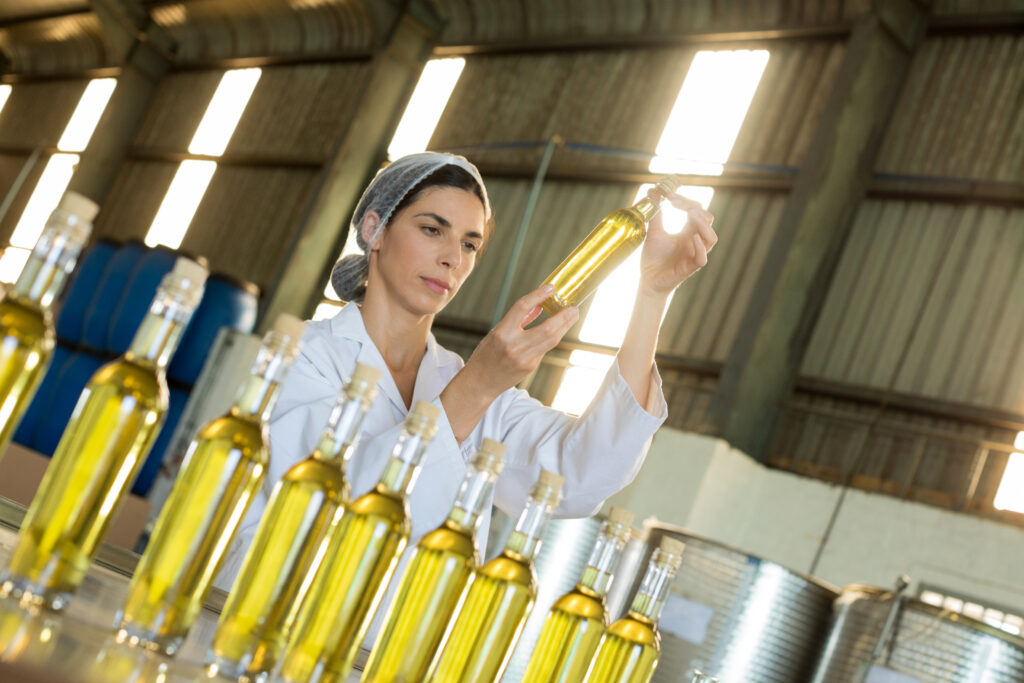Olive oil prices have reached unprecedented levels, driven by climate change challenges and economic factors. Major olive oil markets in the European Union (EU), specifically Bari in Italy, Chania in Greece and Jaén in Spain, are experiencing significant price surges. This year, global olive oil production plummeted to just 2.3 million metric tons from 3.4 million metric tons the 2022/2023 season marking a substantial decline.
The persistent imbalance between the escalating demand and dwindling supply of olive oil can exacerbate the cost of living, placing additional financial pressure on households. In Spain, which produces over 40 percent of the world’s olive oil, prices for extra virgin olive oil have surged to $928.86 (€864.5) per 100 kg, up by 64.4 percent from last year, while refined olive oil prices have increased by 71.9 percent to $892.87 (€831) per 100 kg.
Similarly, Italy and Greece are facing sharp price increases. In Italy, olive oil prices have risen by 60.5 percent, reaching €968 per 100 kg. Greece has seen an even steeper increase, with prices soaring by 82.8 percent to €850 per 100 kg this year.
Related: Chocolate Shortage Looms Ahead of Easter 2024
Olive Oil Price Inflation and Consumer Response
The scarcity of olive oil is prompting premium brands to raise their prices significantly. Well-known brands such as Odysea, Belazu, Napolina and Filippo Berio now charge between $16 and $22.50 (£13 and £18) per liter. This retail price hike reflects the broader trend seen at the production level, where prices in key producing countries like Italy and Spain have increased by around 60 percent and in Greece by over 80 percent.
This dramatic price rise is leading consumers to seek cheaper alternatives, such as sunflower and rapeseed oils. Additionally, the increased value of olive oil has led to heightened security measures in UK supermarkets and made olive oil a prime target for theft in places like Spain, where it has become the “most wanted item” for shoplifters.
Impact of Climate Change on Olive Production
Olive crops are particularly susceptible to climate change, which threatens both their growth and long-term sustainability. A study focused on olive production in Halkidiki, Greece, indicates that the increasing temperatures and altered precipitation patterns could severely impact olive cultivation. The study projects that by 2070, non-irrigated olive groves in Halkidiki will no longer be economically viable due to these climatic changes.
Researchers are urgently calling for the development and implementation of suitable adaptation strategies to preserve the economic viability of the olive sector in the face of these challenges.
Call for Industry Transformation
Deoleo, the largest olive oil producer globally with headquarters in Spain, is advocating for a profound transformation within the olive oil industry to cope with these severe challenges. The company highlights that a combination of strong inflation, rising interest rates and adverse harvest forecasts due to prolonged droughts has led to significant price increases.
Broader Agricultural Risks from Climate Change
Climate change also threatens the broader agricultural sector, as highlighted in a recent Food and Agriculture Organization of the United Nations (FAO) report. Over the past three decades, climate-related disasters have resulted in approximately $3.8 trillion USD in crop losses. Recurrent natural disasters continuously threaten food security and can substantially undermine the resilience of agri-food systems.
Climate change is affecting not only olive oil but also other key crops. For instance, cocoa prices hit record highs earlier this year due to dry spells caused by El Niño in West Africa. Similarly, the production of rice and coffee has been adversely affected by unpredictable climate patterns, leading to increased prices and disruptions in global supply chains.
If you want your company to be featured on Xtalks.com, please email [email protected].












Join or login to leave a comment
JOIN LOGIN